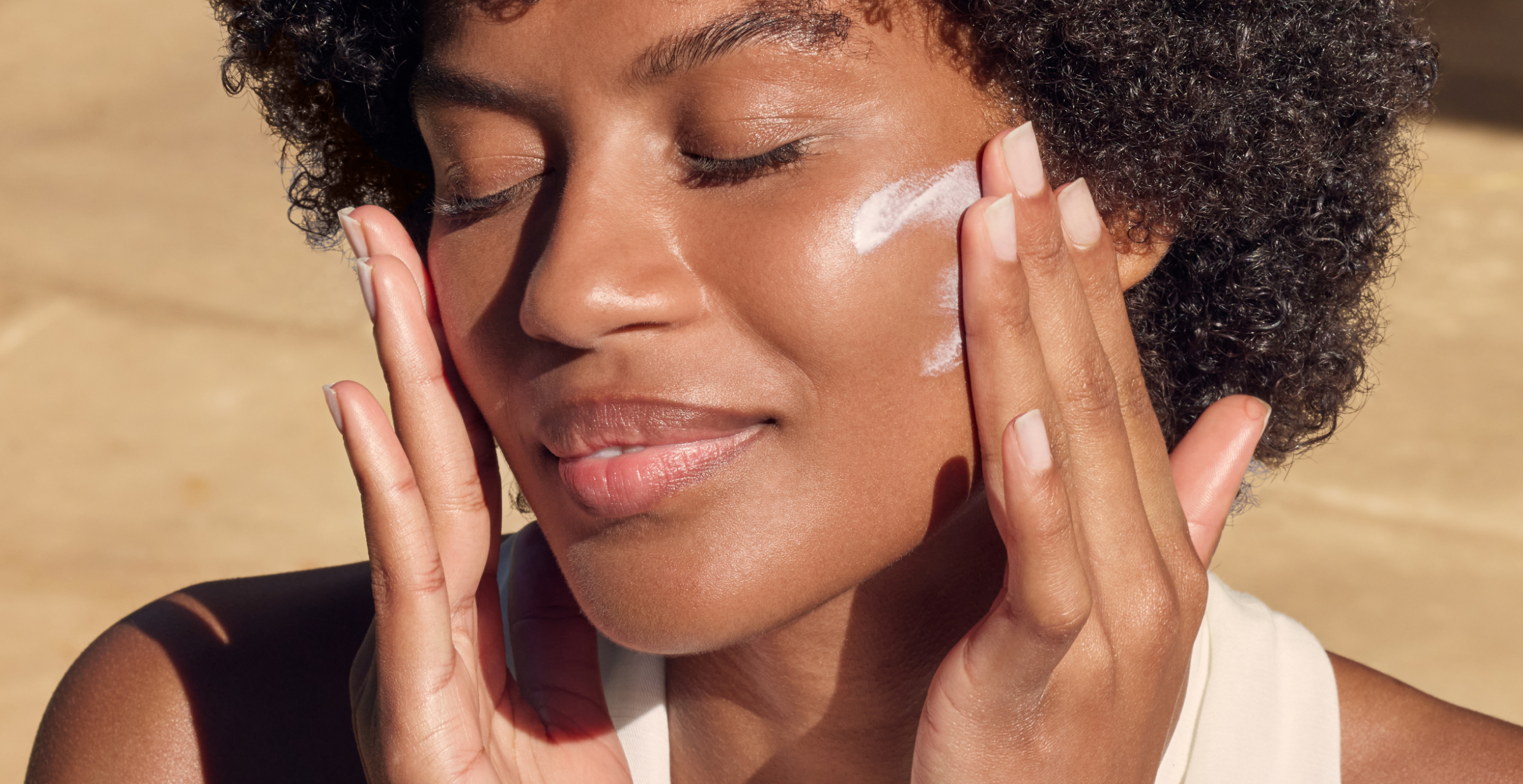“Here comes the sun, doo-doo-doo-doo…” Just reading those lyrics brings a little joy, doesn’t it? Like singing along to a classic tune, sunshine can do a lot to brighten your day. But it even goes one step further—supporting your overall well-being.
That first cup of coffee by the window, a golden hour walk, reading poolside, or spending time with friends on a sunny afternoon—these feel-good moments offer more than just great vibes. They bring real, science-backed benefits for both body and mind.
Today, with insights from Alessandro De Luca, Medical Affairs Specialist, we’re uncovering three powerful ways the sun can improve your physical and emotional health. And we’re willing to bet: by the end, you’ll be craving a little time in the sunshine (with sun protection, of course).
Table of Contents
How does the sun affect your body and mind?

The magic starts with how sunlight interacts with your skin—all thanks to a star 93 million miles away.
Alessandro explains: “When sunlight hits your skin, especially UVB (ultraviolet B) rays, it sparks a chemical reaction that converts a compound in your skin (7-dehydrocholesterol) into vitamin D3, the active form of vitamin D.” This essential vitamin plays a vital role in helping your body absorb calcium, strengthen bones, and support immune health.
But the benefits don’t stop there. As Alessandro adds, “Sun exposure also boosts serotonin production, the neurotransmitter known as the feel-good hormone.” Serotonin helps regulate your mood, sharpen focus, and promote emotional balance. Later, when the sun sets, your body turns that serotonin into melatonin, the hormone that helps you sleep.
So the next time you pause to soak up a little sunshine, remember: You’re not just enjoying the day—you’re nurturing your well-being from the inside out.
1. The sun supports vitamin D production

Let’s start with one of the sun’s most well-known (and most important) benefits: its role in helping your body produce vitamin D, a crucial nutrient for overall health. As Alessandro shared, UVB rays trigger a natural process in the skin that leads to the formation of the active form of vitamin D.
But a little sunlight through the window isn’t always enough. “Factors like where you live, your skin tone, the season, and even the time of day can affect how much vitamin D you produce,” Alessandro explains. That’s why short, regular, and protected exposure to sunlight is key to getting the benefits without putting your skin at risk.
More than bone health
Vitamin D goes well beyond strong bones. “It helps with calcium absorption and bone strength, but it’s also involved in immune support, metabolism, and even gene regulation,” says Alessandro. Studies show it impacts over 1,000 genes across at least 60 different cell types.
Maintaining healthy levels may also help prevent osteoporosis and other chronic illnesses. Low levels, on the other hand, can disrupt calcium metabolism, weaken the immune system, and may even be linked to autoimmune conditions or some types of cancer—though research is still ongoing.
As Alessandro puts it, “Sunlight activates a natural process that’s hard to fully replace with diet or supplements. That’s why thoughtful sun exposure remains one of the best ways to support healthy vitamin D levels.”
“Sunlight activates a natural process that’s hard to fully replace with diet or supplements.”
2. The sun can improve sleep quality

It might surprise you, but a good night’s sleep actually starts first thing in the morning. “Sunlight exposure early in the day works like a natural reset button for your circadian rhythm,” Alessandro explains. This internal clock regulates everything from sleep to hunger, body temperature, and alertness throughout the day.
Morning light signals your brain that it’s time to wake up and stops the production of melatonin, the hormone that helps you sleep. “That morning melatonin drop is important. It helps you stay energized and makes sure melatonin returns at night when you need it,” he says.
Alessandro’s top tip? “A quick morning walk in the sun can boost your energy during the day—and help you sleep better at night.” Your daily sleep-wake cycle starts with that first ray of sunshine.
“A quick morning walk in the sun can boost your energy during the day—and help you sleep better at night.”
Not a morning person? No worries. Research shows that natural light at any time of day—not just in the morning—helps regulate your sleep cycle and promotes deeper, more restorative sleep.
3. The sun can boost your mood

That spark of happiness you feel in the sunshine? It’s real. “Sunlight stimulates the production of serotonin, a key neurotransmitter for emotional balance and mental health,” says Alessandro. Often called the happiness hormone, serotonin helps you stay positive, focused, and emotionally steady.
A healthy dose of sunlight can improve focus, lift your mood, and ease anxiety or mental fatigue. Without it, especially in winter months or regions with less daylight, serotonin levels can dip. “That dip can lead to changes in mood,” explains Alessandro. In fact, there’s a condition called seasonal affective disorder (SAD), directly linked to low sun exposure.
That’s why making time for natural light—even on cloudy days—is one of the simplest ways to support your mental health.
Try stepping outside for a few minutes each day—grab a coffee on a patio or take a lap around the block. Your mind (and body) will thank you.
Sun smart: finding the right balance
Now that we’ve explored what the sun can do for your body and mind, here’s the key takeaway: It’s all about balance.
Alessandro recommends getting sun exposure during “the early morning or late afternoon hours,” when UV radiation is lower but still effective for vitamin D production. These times allow your body to benefit from sunlight without overexposure to harsh rays.
And yes—daily sunscreen is still essential. While it may slightly reduce vitamin D synthesis, Alessandro is clear: “That doesn’t mean we should stop using it.” With brief, consistent exposure during the right times of day, you can protect your skin while supporting your body’s natural functions.

So the next time you need a bit of inspiration or a little energy boost, remember: the sun’s still out there. Step outside, breathe deep, smile (with SPF, always), and let the sunshine lift you up.




